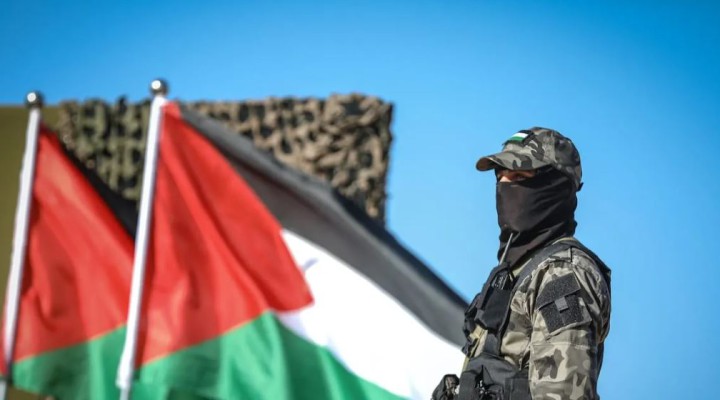The Palestinian resistance is making inroads

Israel needs the Palestinian Authority. That much has been established clearly by Israeli Prime Minister Benjamin Netanyahu during a private meeting of the Foreign Affairs and Defence Committee. At a time when the PA is clearly losing its control over Palestinians, Netanyahu is speaking truths which Ramallah, in its desire to cling to power, will not heed. That is, nothing other than Israel’s concern for the PA’s survival will strike a chord with leader Mahmoud Abbas.
“We need the Palestinian Authority. We cannot allow it to collapse. We also do not want it to collapse. We are ready to help it financially,” said Netanyahu, according to Israeli media. “Where it succeeds in operating, it does the job for us.”
Such clarity regarding the PA’s role in Israeli colonialism should leave no doubts as to the PA’s corrupt collaboration. The “sacred” (as far as Abbas is concerned) security coordination with Israel, as well as the PA’s diplomatic endeavours over the two-state compromise, portray a leadership that is determined to prevent Palestinians from ever achieving any shard of independence. “Their ambition for a state must be suppressed,” Netanyahu said of Palestinians. Abbas is tacitly in agreement; Palestinian independence would surely spell the end of the PA. For now, Israel benefits from a seamless collaboration with the PA, orchestrated by the international community and interspersed with routine condemnations from Ramallah linked mostly to settlement expansion, and bleating to the UN about international protection for Palestinians from Israeli colonial violence, which the PA aids through its own security services.
Two main points can be taken from Netanyahu’s statements. One is that the current Palestinian resistance is worrisome enough for Israel to require annihilation from within. The resistance is clearly making inroads. Secondly, Palestinian resistance is altering Palestinian politics in an unprecedented way, since it is now one of Israel’s priorities to prevent the PA from collapse. Netanyahu’s concerns are also Abbas’s concerns. The only difference is that Netanyahu’s need for the PA’s survival is to aid Israeli colonisation, while the PA perceives its collaborative role as a means to extend its existence. However, the PA is still existing on borrowed time and the power vacuum created as a result of the PA’s dissociation from Palestinian resistance will increase in proportion to the PA’s irrelevance.
For Palestinians, the message is clear. What Israel needs, Palestinians can do without. The PA has long manipulated Palestinians’ historical memory and collective trauma, marginalised refugees to the point of oblivion, made concessions which have changed Palestine irrevocably, and upheld security coordination against the entire Palestinian population. It has oppressed Palestinians involved in resistance, exploited Palestinian prisoners, and tortured and, on occasions, murdered Palestinians who posed a threat to the PA’s illegitimate rule.
As colonial and collaborative violence against Palestinians is set to increase – the PA will upscale its oppression in return for its extended existence – the Palestinian resistance needs to remain unified. With Palestinian factions taking a backseat currently, the opportunity for resistance that is derived from the Palestinian experience can thrive and flourish. Israel may have the military power, but it still faces unknowns and is attempting desperately to keep the status quo, in terms of the PA, from floundering. Netanyahu’s concern provides a window of opportunity for Palestinian resistance.
https://www.middleeastmonitor.com/20230627-the-palestinian-resistance-is-making-inroads/
 TheAltWorld
TheAltWorld 
0 thoughts on “The Palestinian resistance is making inroads”